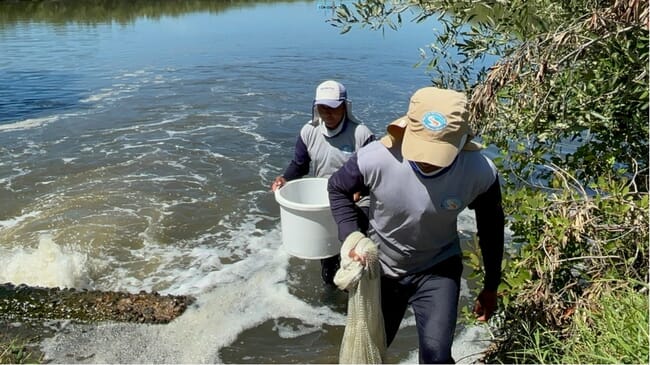
© FAI
The training was conducted by FAI, as part of their shrimp welfare project, which was born out of a collaboration with several industry partners, scientists and shrimp farms aiming to help farmers monitor and implement welfare improvements.
For GGM, it is one of the continuous improvement activities undertaken within its partnership with global aquaculture company Sea Farms and leading UK retailer M&S to secure a better quality of life for shrimp.
Operating in more than 5,000 hectares and harvesting 18,000 tonnes of vannamei shrimp annually, GGM controls all aspects of its shrimp production in a fully integrated system. Those attending the training represented all parts of the production cycle from farm managers to the feeding and harvesting teams, health and quality assurance staff and wider field workers.
FAI head of e-learning, Dr Sara Barrento, reflected on the workshop: “The GGM team has strong knowledge of shrimp farming and shrimp needs. The workshop gave the team confidence they are taking good care of their shrimp and provided the tools to record and report the outcomes of their good practice.”
GGM’s general quality manager, José Luís Avila-Castillo, added: “The consumer does not necessarily understand what high welfare shrimp farming looks like, but FAI’s assessment process and scoring system helps decode our farming data into understandable measures indicating successful production from an animal welfare perspective.”
Sea Farm’s Shannon Roberts agreed, stating: “We are delighted to have implemented a standardised approach to assessing welfare. This system helps the farm team identify where changes are needed and provides the right information to the rest of the supply chain, so the final consumer is assured of the ethical responsibility behind the product they are buying as well as the quality.”




